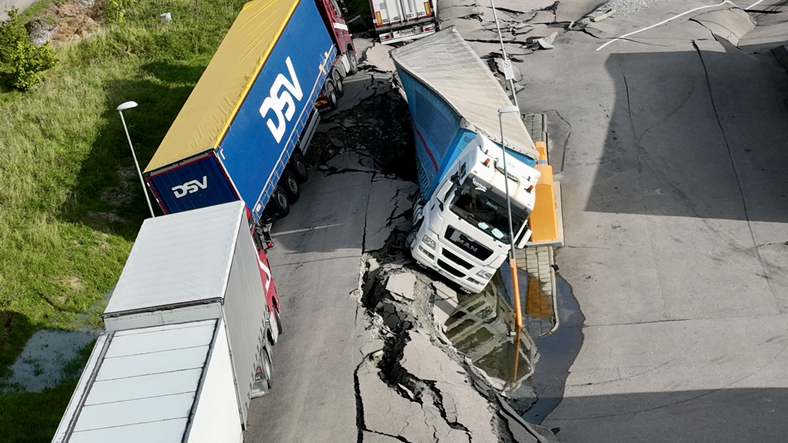Get Our Insider to Property Damage Brochure

How to File a Wrongful Death Claim After a Fatal Truck Accident in North Carolina
November 21, 2024Losing a loved one in a fatal truck accident is a devastating experience that can leave families grappling with emotional trauma and financial hardship. In North Carolina, families have the right to seek compensation for their loss through a wrongful death claim. At Dewey, Ramsay & Hunt, P.A., our Charlotte personal injury lawyers are here to guide you through the legal process and help you secure justice for your loved one. Below, we explain how to file a wrongful death claim after a fatal truck accident in North Carolina.
Understanding Wrongful Death Claims in North Carolina
A wrongful death claim is a civil action brought by the personal representative of the deceased’s estate on behalf of surviving family members. In North Carolina, wrongful death claims are governed by N.C. General Statutes § 28A-18-2, which allows families to recover damages when the negligence, recklessness, or intentional actions of another party cause a death.
Depending on the circumstances of a truck accident, liable parties may include the truck driver, the trucking company, vehicle manufacturers, or other entities.
The steps to file a wrongful death claim include:
- Appoint a Personal Representative
The first step in filing a wrongful death claim is appointing a personal representative for the deceased’s estate. This individual is typically named in the deceased’s will, or if no will exists, the court may appoint a close family member, such as a spouse, parent, or adult child.
- Investigate the Accident
A thorough investigation is crucial to determine the cause of the accident and identify liable parties.
Key evidence in a truck accident case may include:
- Police reports.
- Eyewitness statements.
- Truck driver logs.
- Black box data.
- Maintenance records.
- Surveillance footage.
Our attorneys work with accident reconstruction experts and other professionals to uncover the truth and build a strong case.
- Determine Liability
Truck accident cases often involve multiple parties, making liability complex.
For example:
- The truck driver may be liable for negligent driving.
- The trucking company may be responsible for inadequate training, poor maintenance, or violating federal regulations.
- Manufacturers may be held accountable for defective truck parts.
Our team carefully evaluates all potential sources of liability to ensure all responsible parties are held accountable.
- Calculate Damages
In a wrongful death claim, families may recover compensation for:
- Medical expenses incurred before death.
- Funeral and burial costs.
- Loss of income and benefits.
- Loss of companionship and guidance.
- Pain and suffering of the deceased before passing.
We work to document all damages comprehensively to maximize the compensation you receive.
- File the Claim Within the Statute of Limitations
North Carolina law imposes a two-year statute of limitations on wrongful death claims. This means the claim must be filed within two years of the date of death. Failing to meet this deadline can result in losing the right to pursue compensation.
Why You Need an Experienced Charlotte Wrongful Death Attorney
Wrongful death claims involving truck accidents are complex and require extensive knowledge of state and federal regulations governing the trucking industry. Our Dewey, Ramsay & Hunt, P.A. attorneys have the experience, skills, and resources to handle these challenging cases. From investigating the accident to negotiating with insurance companies or taking the case to trial, we are committed to achieving justice for your family.
Call 704-377-3737 or contact us online to discuss your tragic loss during a free consultation.
We provide unique legal services tailored to each client’s needs and do not get paid unless you do.
Your Injury, Our Fight. How can we help you take a stand?
Because every case is different, the description of awards and issues previously managed by our law firm does not guarantee a similar outcome in current or future cases.

